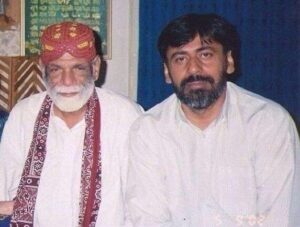Remedy for all difficulties
Introduction
Life is a complex journey filled with a myriad of challenges and difficulties. These challenges are a universal part of the human experience, varying in form and intensity. Understanding, managing, and finding effective remedies for these difficulties is crucial for maintaining our mental, emotional, and physical well-being. In this context, we introduce an innovative solution, “The Ultimate Remedy,” an audio therapy designed to aid in a wide range of life’s difficulties.
Introduction to Life’s Difficulties
Life’s difficulties are diverse and can range from personal struggles like health issues, emotional turmoil, and relationship problems to external challenges such as financial stress, career obstacles, and societal pressures. These challenges, while often daunting, are integral parts of our growth and development.
Understanding Life's Challenges
Understanding these challenges involves acknowledging their presence and impact on our lives. It’s about recognizing the emotional and physical responses these difficulties evoke and how they influence our thoughts, behaviors, and overall quality of life.
Causes of Life's Difficulties
The causes of life’s challenges are varied and multifaceted. They can include:
Personal factors like health, personality, and past experiences.
Interpersonal issues within families, friendships, and romantic relationships.
External factors like economic conditions, societal changes, and environmental stressors.
Identifying these causes is essential for addressing them effectively.
Managing Life’s Challenges
Managing life’s difficulties requires a holistic approach that includes:
Seeking support from loved ones or professionals.
Practicing self-care and mindfulness.
Developing coping strategies and resilience.
Making lifestyle changes that promote overall well-being.
Each individual’s strategy for managing challenges will differ based on their unique circumstances and needs.
The “Ultimate Remedy” An Alternative Approach
Amid various strategies for coping with life’s challenges, “The Ultimate Remedy” stands out as a unique and versatile tool. This audio therapy program utilizes the power of sound and intention to promote healing and alleviate a wide range of life’s difficulties.
How to Use The Ultimate Remedy
Download the Audio: Obtain The Ultimate Remedy audio from our website. Links are provided for easy access.
Follow the Listening Instructions: Adhere to the guidelines provided with the audio to ensure you receive its full benefits.
Seek Support and Share Experiences: For questions or further assistance, contact help@mastmasthealers.com. Reading testimonials can offer insights into others’ experiences and the effectiveness of the therapy.
Benefits of The Ultimate Remedy
Therapeutic Sound Frequencies: The audio uses frequencies known for their healing properties.
Intention-Driven Healing: Combining sound with focused intention amplifies the therapeutic effects.
Happy Patients
Years since day one
%
Satisfaction
Testimonial
How to Listen to the Ultimate Remedy:
Download the Ultimate Remedy audio from our website or app. It’s free and accessible to all.
- Choose a quiet, comfortable space where you won’t be disturbed.
- Close your eyes and visualize yourself in the presence of your higher power or the essence of the universe.
- Listen to the audio with great concentration and closed eyes.
- After the audio is finished, open your eyes and take half a glass of water.
- Close your eyes again and say “your name” or a word that represents your belief (such as “God”, “Universe”, or “Love”) three times in your heart.
- Drink the water with closed eyes in three sips.
- For optimal results, it’s recommended to listen to the Ultimate Remedy three times a day (morning, evening, and before sleeping) for seven consecutive days.
About the Creator – Syed Safdar Hussain Bukhari
Introduction and Early Life
Syed Safdar Hussain Bukhari, also known as Kakian Wali Sarkar, was a unique example of kindness, devotion, and tenacity. Born on May 6th, 1940, he dedicated his life to serving humanity and providing relief to those suffering from various ailments.

Social Work and Spiritual Journey
Between 1960-1980, he engaged in social work by undertaking road repairs, establishing schools, and arranging medical supplies in Lilla Town. In 1990, he left his ancestral home and family wealth to move to Lahore, where he comforted the depressed and saddened through mystic dance and music.
The Ultimate Remedy
In 1998, Baba Bukhari’s research led to the discovery of “The Ultimate Remedy,” a blessed audio that he believed could cure physical, psychological, spiritual, and supernatural problems. The remedy involved listening to the audio three times a day for seven consecutive days, followed by a specific water ritual. This method claimed to cure various ailments, including coronavirus, AIDS, cancer, drug addiction, worldly problems, and psychological issues.
Legacy and Death
Baba Bukhari’s research and unconditional love left a lasting impact on humanity, providing positive thinking, peace of mind, health, fearless life, and an example of love and compassion. He passed away on February 8th, 2005, leaving behind a legacy of healing through “The Ultimate Remedy.”

His spiritual successor is Syed Baba Jaan
According to Baba Bukhari (RA), his spiritual successor is Mr. Shakir Uzair, also known as Syed Baba Jaan . As the chosen heir to Baba Bukhari’s spiritual legacy, Syed Baba Jaan carries forward the teachings and practices that have been passed down through generations. Dedicated to serving humanity and promoting healing, Mr. Shakir Uzair continues to spread the message of love, compassion, and the transformative power of the Ultimate Remedy to help countless individuals in their journey towards holistic wellness and personal growth.

